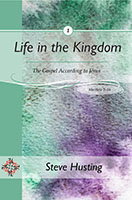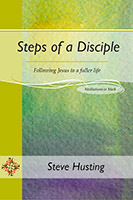God has designed our brains to work with his program of changing lives. God not only tells us what to do, but has given us everything we need to follow along with his program. An obvious example would be giving us a mouth so we can pray, worship, and encourage others. He not only tells us to care for others, but has given us hands and feet to carry out acts of compassion.
In Dr. Caroline Leaf’s book, Switch On Your Brain, she reveals several fascinating features God has built into our brains that, when scripture is followed, results in mental and emotional healing and peace. (Yes, she’s a Christian and a scientist.) The brain has healing aspects built into its nerve/cellular structure. It repairs itself, removing the edge from bad memories, negative behaviors, and emotions. The brain physically uses God’s truths to heal itself.
Some of the results of her work with the brain have been:
- Senior citizens sharpen their memories to the point that in their eighties they change careers and obtain degrees.
- Young men and women who grew up in abject poverty do an about-face in their lives, kick drugs, go back to school, and become leaders in their communities.
- Car accident victims who had been written off by neurologists as “vegetables” retrain their brains to the point that they complete their schooling up to a tertiary level and gon on to become successful, contributing citizens.
- Children with dyslexia learn to read and write and even help their parents study for exams successfully.
- Suicidal and emotionally traumatized minds are set free
And the list goes on.
Some of the foundational facts are fascinating. Our thoughts, emotions, and memories occupy physical space in our brains. When we start new memories, new nerve “trees” are formed, and memory and emotions are attached to them with “glue.” Good memories help how your brain works; bad or “toxic” memories degrade your brain function – your memories and emotions come from your brain and affect you daily. What if we could stop those negative emotions and depressing thoughts? Would it improve our lives?
The word of God tells us what steps we are to take to grow, and this book goes behind the scenes to see how God’s truth, rightly applied, works to clear away the negative gunk we’ve built up in our brains since childhood. We are then set free to pursue Christ more fully, being more human, more like him.
This is not strange mysticism, but God’s truth working with the physical brain he gave us to heal us and conform us into the image of Christ.
Just as we unwittingly formed negative thoughts, habits and emotions in the past that erupt at inopportune times today when they are triggered by something, we can consciously form new memories and emotions that actually replace the old conditioning we and others around us gave us.
The Bible tells us, “Therefore put to death your members which are on the earth: fornication, uncleanness, passion, evil desire, and covetousness, which is idolatry” (Colossians 3:5). If any of these are patterns in our life and affect how we think and view the world, then we must turn our thinking around. God commands us to. The command makes it imperative that we ourselves are to do something about it. Repentance to God is our part when working with the Holy Spirit.
Do you want to overcome these attitudes?
- I’m a failure
- I can’t do that
- That blessing is for others, not me
- I’m worthless; I’m stupid
- I’ll never change
- God will never forgive me for that
- I know I should, but don’t feel like it
- I just don’t feel saved
- I care too much about what others think
- I don’t belong
- No one cares about me
- I’ll never be able to like that person
- I can’t help it
- My marriage will never improve
- I’ll never be able to talk to people about Jesus
- I’ll never be able to stand that person, much less love him/her
- I will always have a grudge against him/her
So consider this biblical pattern of repentance: the Spirit convinces us of a bad behavior, perhaps through a scripture or Christian book or article. In response, we acknowledge the behavior and agree it is wrong; choose a new behavior to overcome the old; have a positive scripture to encourage us to change; and finally, resist the old behavior and practice the new behavior daily until it is habitual. (You didn’t think conformity to Christ happened magically, did you?)
Now let’s see what the brain does in response to this chain of events. When we acknowledge that a behavior is wrong and choose a new behavior to replace it, we write new memory “trees” in our brain and the new memory is embedded in them. They are volatile; we may forget them within the next hour if we don’t go further. (This is why you can read a devotional every day and it not affect you. “The cares of this world enter in and choke the word.”)
But when we search for scriptures to encourage us and pray for help to overcome this problem, we are continuing to think about the problem, and the more we think about it, the more “glue” is added to the memory to make it stick to the “tree.”
It’s important to find positive promises for change so we can attach a positive emotion to the process. Emotions are processed with memories. Just think of the Vietnam vet who comes home from combat, and war memories are sparked by everyday triggers, and the vets relive the violently emotional trauma of the time. Or think of Christmas and feel the comfort that accompanies the memory. Your brain in action.
So let the promises give you feelings of hope for change. Add more positive emotions to the memory by worshiping the Lord for who he is and what he is able to do through you.
Lastly, always seek opportunity to resist the old behavior and practice the new behavior. Be watchful. This affects the brain in two ways. It loosens the glue of the old memory so that it and its tree begin to diminish, and strengthens the glue of the newer memory. In addition, constantly doing this new behavior teaches the brain what you really want; the brain responds by letting the old memory go along with its associated emotions and behavior. The brain “learns” through repetition what’s important to you and what’s not, and changes accordingly.
So a memory that brought on feelings of shame over the decades can lessen to where you still do not forget the past, but it no longer controls you. We have given control over to Jesus and his liberating truths instead. The painful memories are no longer lord; Jesus is Lord; we are following him and his purposes.
Keep on praying about the issue; look up more scriptures for help and guidance. The more you think about the issue, the more you teach the brain what you really want, and it affects the growth of new memories and the dissipation of the old memory’s emotions.
Congratulations. Your life is transformed.
This doesn’t happen overnight. Leaf says in Switch On Your Brain that it takes 21 days of daily practice to get the memory fixed and another 21 days of practice to make it a habit (as well as to diminish the old memory).
It doesn’t matter how young or old you are; the brain makes these changes throughout its life. It doesn’t matter how emotionally damaged you are; the brain will erase the old memories if you decide you will no longer dwell on them but get on with a new life.
With this process, you are pressing your mind into the service of God. You are loving the Lord with all of your mind. You are renewing your mind and letting his mind be in you.
Concluding personal observations
1. Does this mean that the positive confession Christians are right?
The book only describes physical changes in the brain, but because of those changes, it can change our behavior and thinking as well. “As a man thinks, so he is.” Thinking alone will not rain money from the sky to make you rich – positive confession can go only so far. Miracles will not spontaneously appear by our beliefs merely through growing memory trees; however, it can help dissolve those negative thought patterns that inhibit believing in God’s grace. This process cannot make you miraculously rich, but it can eradicate a lazy mindset and make you more productive in your approach to work.
2. Does this aspect of successfully changing our brain cause us to be less dependent on God?
On the contrary, if you wish to be more like Christ in your behavior, attitudes, and thoughts, then the process will only help. You start with scripture’s picture of Jesus and compare your life to that picture, then you make changes accordingly as led by the Spirit. So it is not a replacement for how God works, but a built-in tool for change, like the ears he made are to listen to the suffering brother so we can help. Our hands and feet, our whole bodies, are tools to serve God. God not only tells us what to do, but gives us tools to follow through. God made the body, so the body is blessed. But will we use this tool properly for his service, or not? That is the question.
3. Can’t atheists use this mind-changing technique to be more like Christ or more godly?
No, because they lack the personal relationship with God that Christ had. An atheist can always become more moral, but a Christian’s goal is to be more surrendered to God, to love Him with all the heart, all the soul, all the mind, all the strength, and to love his neighbor as himself. Since an atheist by definition does not believe in God, she can only pursue self-enrichment, not God-attachment. An obedient relationship with the Father is what defined Christ’s life, not just being a good person.
4. Isn’t the mind the tool of the Devil, and we are increasing the evil by using this brain-changing technique?
On the contrary; over and over the NT tells us to use our minds for the Lord, even to renew our minds and love the Lord with all of our minds. The Lord made the brain; we are “fearfully and wonderfully made.” (“Fearfully” is the old English way of saying “awesomely” or wonderfully.) The Devil did not create us; God did. God is for the body.
5. Doesn’t this take away the necessity of faith in a believer’s life?
Well, do your eyes, which wants to see evidence, take away faith? On the contrary, you use your eyes to read scripture and look for promises to believe. Does your mind, which wants to understand and seek evidence and know the “why” of things, take away your faith? No; you think through what God said, make connections between the scripture and your life, and use your brain to come up with ways to cut off the bad behavior and practice the new one. In all these things, you exercise faith that God will use you. Faith without works is dead; all these actions are the working out of faith. (In the biblical sense, “faith” does not mean to believe without proof; it means to be confident about something. The dictionary defines the “popular” meaning of the word, not the biblical meaning. Be careful when using that resource to understand scriptural words.)
You can learn more about Leaf’s book, Switch On Your Brain, as well as read what others think, here: http://www.amazon.com/Switch-Your-Brain-Happiness-Thinking-ebook/dp/B00CIUJXAS/ref=sr_1_1?s=books&ie=UTF8&qid=1438059300&sr=1-1&keywords=switch+on+your+brain






